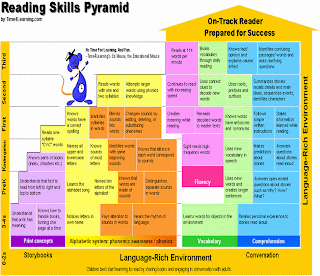I completed a Building Block search in Project Muse.
S1 = "Early Literacy" or "Reading Readiness" = 26
S2 = Library = 17786
S3 = Program* = 34455
S4 = "Early Literacy" or "Reading Readiness" and Library and Program* = 9
Here is a copy of my search in the database.

First Hit:
McKechnie, LynneObservations of Babies and Toddlers in Library SettingsLibrary Trends - Volume 55, Number 1, Summer 2006, pp. 190-201 - Article[View HTML] [View PDF] Subject Headings:Library science -- Research -- United States -- Methodology.Observation (Psychology)Behavioral assessment of children -- United States.Abstract
Participant observation, unlike the more traditional approach of querying adults about children's experiences, is identified as an appropriate and effective method for studying babies and toddlers in public library settings in order to explore these experiences from the children's own perspectives. In an observation study of eleven, thirty-minute baby storytimes conducted at two branches of a large public library system, the naturally occurring behavior of the children captured through observation field notes and audio-recording and transcription of the program successfully revealed numerous incidents of emergent literacy activities and social interaction. This article discusses the practicalities of implementing participant observation in storytime programs for very young children. Special requirements related to informed consent, the need to protect baby and toddler participants, and the challenge of gaining and maintaining access are addressed. Included is an appendix of recommended observation, child development, and research methods texts.
Reflection on Search: This search didn’t come up with as many relevant hits as my searches in ERIC and Library Literature. I thought about stopping with the original 26 hits from my fist string, but felt like the majority of them were not relevant. In the end, four of the nine articles I found seem to be helpful.
 I selected the Library, Literacy, and Books Services (LLABS) site created by the California State Library and the California Children and Families Commission (First 5 California) as the website for my blog topic of early literacy and public libraries.
I selected the Library, Literacy, and Books Services (LLABS) site created by the California State Library and the California Children and Families Commission (First 5 California) as the website for my blog topic of early literacy and public libraries.





 Reflection on Search: Most of these articles are calendars for public library programming. They definitely indicate an interest on the part of public libraries in supporting early literacy. One of the programs listed in my first hit:
Reflection on Search: Most of these articles are calendars for public library programming. They definitely indicate an interest on the part of public libraries in supporting early literacy. One of the programs listed in my first hit:

 I changed Library to "Public Library" for my final search. S3 = "Early Literacy" and "Public Library" = 9 hits
I changed Library to "Public Library" for my final search. S3 = "Early Literacy" and "Public Library" = 9 hits First Hit:
First Hit: Reflection on Search: I like this search even more than the last. All of the articles do relate to children’s literacy programs and some of them address things I haven't heard of before, like the Flannel Board article. One of the articles from the previous search, “Born to Read: Florida Style,” appeared in this search also.
Reflection on Search: I like this search even more than the last. All of the articles do relate to children’s literacy programs and some of them address things I haven't heard of before, like the Flannel Board article. One of the articles from the previous search, “Born to Read: Florida Style,” appeared in this search also.



 Reflection on Search: I feel pretty good about this search. All of the articles do relate to children’s literacy programs in libraries, and many of them relate specifically to preschool and infant early literacy programs. I have discovered through my research that Multnomah County in Oregon has done a great deal of early literacy programming.
Reflection on Search: I feel pretty good about this search. All of the articles do relate to children’s literacy programs in libraries, and many of them relate specifically to preschool and infant early literacy programs. I have discovered through my research that Multnomah County in Oregon has done a great deal of early literacy programming.